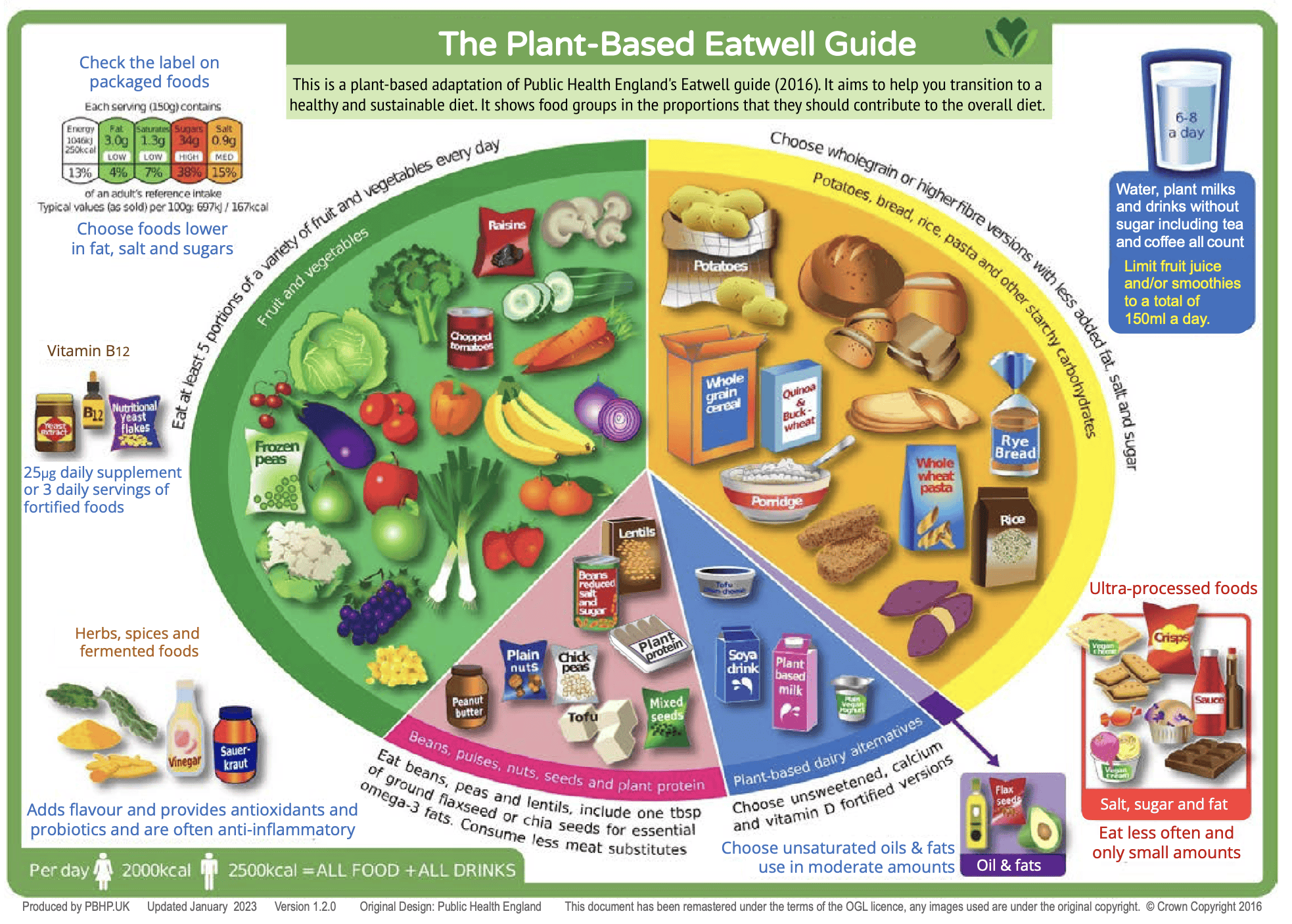Blog
5 Key Takeaways From The Plant Based Treaty Playbook For Universities And Colleges
August 8, 2024

We are entering a critical time in the world and must shift towards sustainable and healthy plant-based diets across the board in order to live within our planetary boundaries. This is outlined extensively in Plant Based Treaty’s Safe and Just report as they raise the alarm bell on interrelated tipping points. Universities and colleges can play a significant role and have the potential to drive food system change. The Playbook for Universities and Colleges explains how campuses around the world can lead the way by transitioning to a plant-based food system and the benefits that will affect not only the health of students, but save millions of animals and our planet.
1. Health Benefits
“A staggering 2.1 billion adults across the globe are overweight or obese, making them susceptible to severe health conditions such as diabetes, cardiovascular diseases, and various forms of cancer. Thus, emphasizing the role of healthy dietary patterns is crucial.”
Cardiovascular diseases are the leading cause of death worldwide. Eating more plant-based foods also lowers the risk associated with chronic diseases. In fact, as outlined by the Global Burden of Disease study, when we eat more whole grains, vegetables, fruits, and nuts and seeds, it helps prevent millions of premature deaths annually.
The Plant-Based Eat Well Guide, developed by UK’s Plant-Based Health Professionals, was created to help people adopt a healthy whole-food plant-based diet; and Canada’s Food Guide also strongly emphasizes the significance of plant-based foods in meal planning. Bottom line? Eat more plants and less animal products for optimal health.

The Plant-Based Eatwell Guide demonstrates a balanced and healthy diet for all ages. Developed by Plant-Based Health Professionals (UK).
2. Financial considerations

The playbook reports “research by Oxford University compared the costs of diverse diets in 150 countries and found that vegan diets significantly reduced food costs by up to ⅓ in high-income nations.
“In another study involving participants from low-income backgrounds, adopting a plant-centered diet led to substantial savings, averaging nearly $40 per week, and a noteworthy decrease in reliance on food pantries, from 68% to 54%, signaling a reduction in food insecurity.”
3. Train And Educate Chefs
“We offer a suite of videos, each exploring different aspects of plant-based cooking, followed by a live cooking session and presentation on how more plant-based food is kinder to the environment, human health, and animals, and also great for business!”
Teaching educators how to incorporate various lesson plans into the syllabus to help raise awareness not only on the health benefits of eating plant-based, but to teach about the environmental impacts caused by animal agriculture to our earth, is also beneficial. Educators and students can screen important films like Eating Our Way To Extinction, The Smell Of Money, and other environmental movies.
Students can become involved in inspiring chefs by campaigning for more vegan options on campus. Yarim Hinojosa, a student at the University of Toronto and president of the Plant Based Treaty U of T student club, organizes events to increase visibility about plant-based food and starts important dialogue about the impacts going vegan has on their health, the environment, and animals.
4. Go ‘Greener by Default’ And Transform Menus

By adopting greener by default standards as university and college policy and phasing in more plant-based options to menus, change will happen. Making the plant-based meals the default option rather than one with animal products, students at institutions are more likely to choose the vegan meal, even with other options available by request. Greener by default is a positive and inclusive strategy to provide sustainable meals to students on campus.
And who doesn’t love a fun taste test? A creative way to involve students in menu planning is to have them provide feedback to chefs on new items, as shown by public school age children in New York City’s education department, as they try new vegan and vegetarian options.
For a step by step guide for cooking in schools, including healthy recipe ideas, check out the Lunchbox that provides helpful online tools to support schools in developing and sustaining food operations in serving ‘made from scratch’ plant-based meals.
5. Students And Universities Leading By Example
In Canada, The University of British Columbia in Vancouver has many plant-based dining options to choose from including Angora Café, a restaurant with vegan and vegetarian options that is student and volunteer run.
In the USA, Stanford University’s vegan and vegetarian dining guide ensures there are a variety of plant-forward options in every dining hall. They have chefs specializing in plant forward cuisine and their menus are typically over 50% vegan and 80% vegetarian. They have even been awarded an A+ rating for vegan dining by Peta(2)!
In the UK’s Cardiff University, their sustainable food policy ensures half their menu items on campus are vegan and students enjoy healthy meals at Green Shoots Café, their first all vegan and veggie restaurant.
In Europe, Finland’s University of Helsinki serves only plant-based options at university receptions and parties to reduce their carbon footprint, in addition to moving towards a model serving vegetarian and vegan food where possible on campus.
Campus campaigns to admire include Plant Based Universities UK, Challenge 22, Veganuary, Vegan Outreach, Better Food Foundation, and University Affairs’ initiative to make plant-based foods the default on campus.
A new school year is starting soon, making it the perfect time to add more plant-based menu options across all campuses. The Plant Based Treaty Playbook for Universities and Colleges outlines exactly how to do this so we can move towards a more sustainable food system.

Miriam Porter is an award-winning writer who writes about veganism, social justice issues, and eco-travel. Miriam currently lives in Toronto with her son Noah and many rescued furry friends. She is a passionate animal rights activist and speaks up for those whose voices cannot be heard.
More from the blog
Ten Plant Based Treaty Celebrity Endorsers Making A Difference
By Miriam Porter
Kickstart Spring With A Nourishing Green Smoothie By Dr. Brooke Goldner
By Miriam Porter
From Global Advocacy To Menu Changes: Plant Based Treaty’s Goals For 2025
By Miriam Porter



